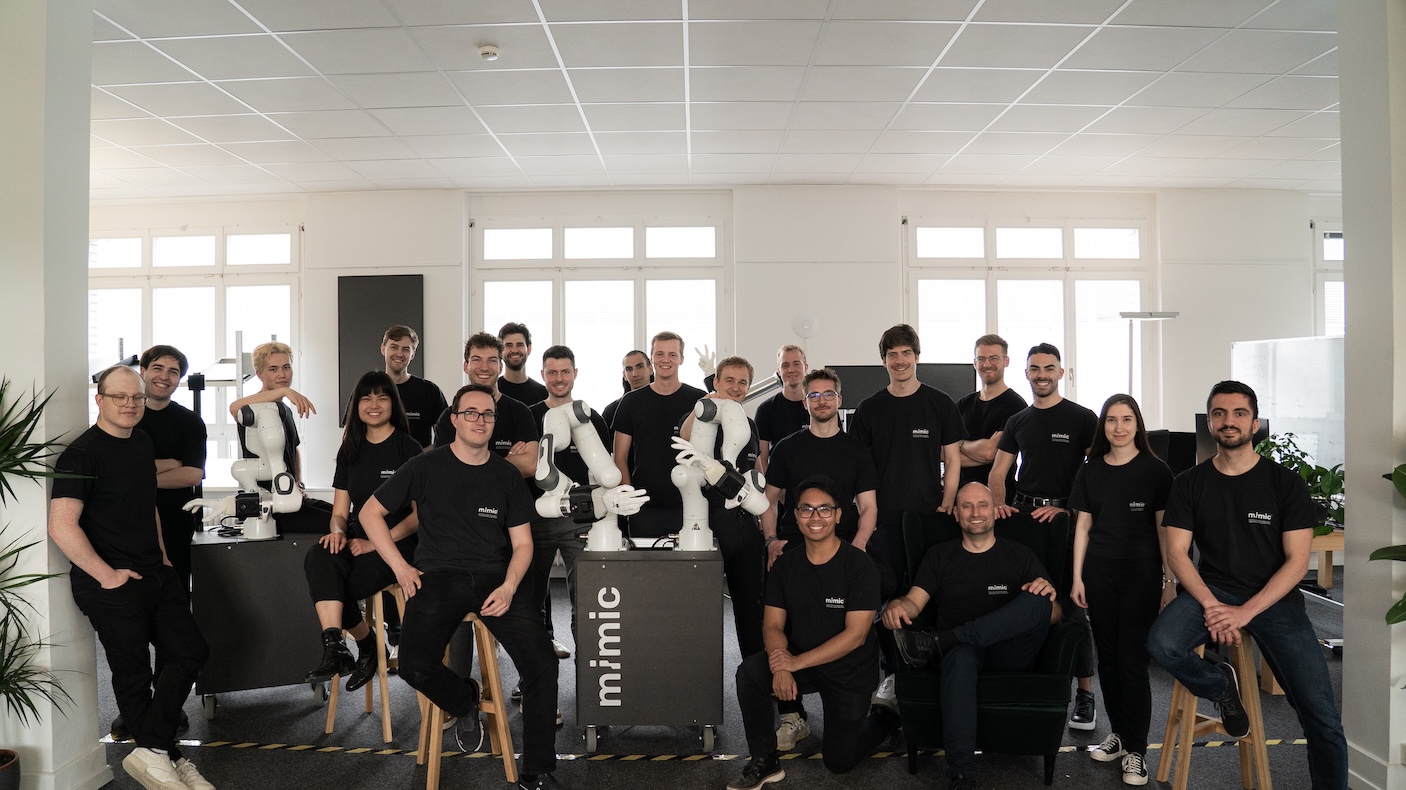Want to Be Recession-Proof? It Starts With Self-Awareness
A lot has already happened in the first half of 2022 and we can’t ignore it. The financial markets have changed rapidly, crypto-currency crashed, a war sparked mass inflation, and the global stock market took a dive. And that’s not even mentioning the tail-end of COVID-19 and the resulting economic ramifications. It’s all we hear about in the news today.
But is it all doom and gloom? Short answer, no.
Yes, many companies will, if they haven’t already, have some tough decisions to make in the days ahead––and we don’t want to downplay that or rehash the same recession-proof tips you’ve seen shared by other VCs on social media. (We’ve added the advice our Marketplaces & Consumer team shared with their founders at the bottom of the article if you'd like to read.)
Call us optimists but we’re open for business! And we would rather use this time to talk about the fact that some of the greatest companies have risen out of recessions, either newly formed or sparked by a pivot in order to roll with market changes.
Surviving, and even thriving, in a potential recession boils down to self-awareness.
The Dot-com Boom of 2000
The online world had its first taste of this back in 2000 with the dot-com crash. After years of the internet bubble inflating into incredible proportions, it popped, sending thousands of companies into administration.
But during this recession, a number of companies were founded––such as TripAdvisor, Friends Reunited, StubHub, and JustEat––that went on to be successful. All of this was happening while giants, like pet.com, boo.com, and other .coms were fading into the shadows.
So what went wrong? The bubble created a world of self-inflation where companies were overspending to acquire customers because the environment allowed for it. This go big or go home attitude eventually led to a number of companies going home.
The survivors were the ones who built deep foundations that worked beyond the communities they were trying to inflate. Look at Amazon and Google. Both of these companies went on to not only sell books and search results, but also hosting and infrastructure solutions. They also created products that had a true sense of market-fit and community that didn’t rely on high customer acquisition costs.
The Great Recession
Not even 10 years later, and it happened again. The Great Recession of 2008. Companies were going bankrupt, consumer spending behavior dramatically changed, and the largest economic downturn in 80 years hog-tied the world into submission.
This time, the world was significantly more connected through the internet. We were far better equipped to share and consume what was going on around us. While the Lehman Brothers were clearing their desks, a number of savvy entrepreneurs were paying attention, listening to the markets, and took this as an opportunity to start something new.
During the recession, companies such as Uber, WhatsApp, FourSquare, and Groupon were founded. With these examples, it’s clear to see why they were successful. Uber allowed people to easily travel without owning a car. WhatsApp used the new wave of smartphones to connect friends and families together that didn’t require another internet or phone bill. FourSquare and Groupon encouraged the public to go out, visit new places, become the ‘mayor,’ and get a good deal while doing it.
Is another recession on the horizon?
The idea of a boom and bust cycle isn’t new news. Between 1854 and 2009 there were 33 of these moments in the United States, and we typically saw the average length of a growing economy lasting 3.2 years, and a recession that lasted 1.5 years.
COVID-19 brought an end to the longest period of economic expansion on record, but the pandemic-enabled recession only lasted two months. Then, the bubble grew.
History shows us that another recession is on the way. How big and for how long is yet to be determined, but the message today is to be self-aware and prepared.
How to future proof your business
While we’re not economists, we have navigated our fair share of recessions, corrections, and crises. Throughout all of those, there are some key learnings of how to best prepare yourself for the future.
If your business is already in the market, listen to that market. We speak tirelessly about finding product-market fit, and if your company is lucky enough to have attained it, it’s time to maintain it. This can be done by adjusting your product or offering to stay relevant with your market. Agility is key. You can read more about maintaining and attaining market fit here.
Methodologies, such as product-led growth, enable products to effectively “sell themselves,” which can cut down on business costs while also ensuring a level of customer satisfaction. If your product is already running well with customers, it may also be time to build out your first Growth-Model to better follow customer behavior and keep yourself relevant.
If you’re pre-launch or don’t even have your business yet, it’s also time to start listening. Listen to the world around you and understand what the current problems are and how you can solve them. Behaviors change, and having a solution for these changes can put you ahead.
Right now
The contrarian view is that the water is still warm at the early stages. If you are a builder who wants to build a company with solid foundations in a capital-efficient way, this is the time to plant your seeds.
As companies large and small scramble to improve conversion rates while dropping marketing spend, a new opportunity arises. The larger companies may not be agile enough to pivot to new market needs and trends due to their historical “baggage” and commitments, and therefore, we may see CAC (Customer Acquisition Cost) become more efficient. This opportunity creates a more competitive edge, giving smaller companies a shot at significant market share.
Just look at the biggest companies out of 2008 and how markets have been disrupted. This will happen again now. The ideas are there, the market has created an opportunity, and highly skilled talent just hit the market. With discipline, huge companies will be built.
Advice and tips to try and recession-proof your business
- Unit Economics matter! (That shouldn't surprise anyone.)
- The “growth above all” mantra is dead and replaced by a focus on efficiency and sustainable growth.
- Listen to your customers and be agile. You need to maintain market-fit, not just attain it.
- Investors are becoming more picky and the bar is higher.
- Fundraising across all stages is becoming much harder as capital is becoming more scarce again and ”tourist investors” stop investing.
- Fundraising processes may take significantly longer.
- Valuations are under pressure as public and private market comparables are correcting.
- “Cash is King” i.e. it's all about your company’s runway (Safe Zone: 24+ months).
- Whether you need it urgently or not, there will be no better opportunity and timing to trim some fat and optimize your business than right now!
- Raise money when you can, not when you have to. This is not the time to over-engineer and over-negotiate your financing rounds. Speed matters.
- Measuring and reporting your “burn multiple” becomes key as prospective investors will ask for it. (Please include it in your monthly KPI reports to us going forward––no joke!)
- Strong fundamentals, a focus on KPIs, and data-driven execution will be rewarded by investors.
- This is not the time to panic, but the time to reassess.














.svg)
